whole foods diet
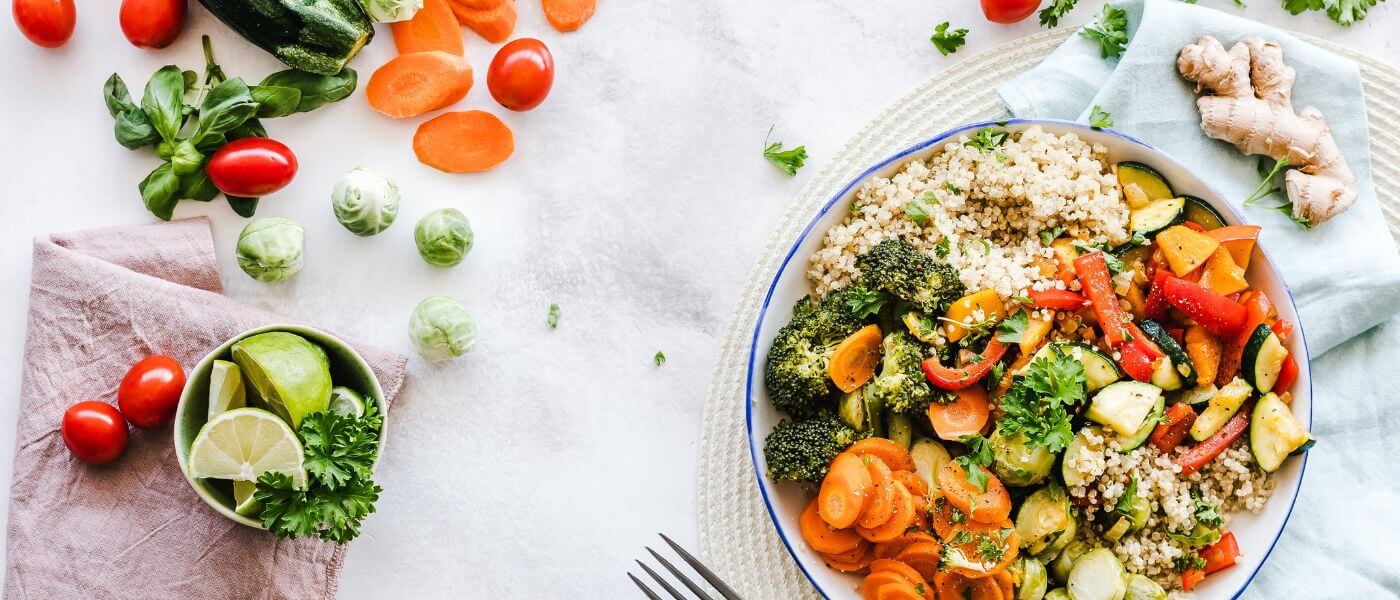
Diet is important when we are working towards leading a healthy lifestyle and taking care of our bodies. The whole foods diet is a good choice to start your journey towards a better lifestyle.
That’s why today we will be talking about
- the whole foods diet,
- why it could change the way you think about your eating habits
- how you can start the best virtual whole foods cooking classes today!
Table of contents
What is a whole foods diet?
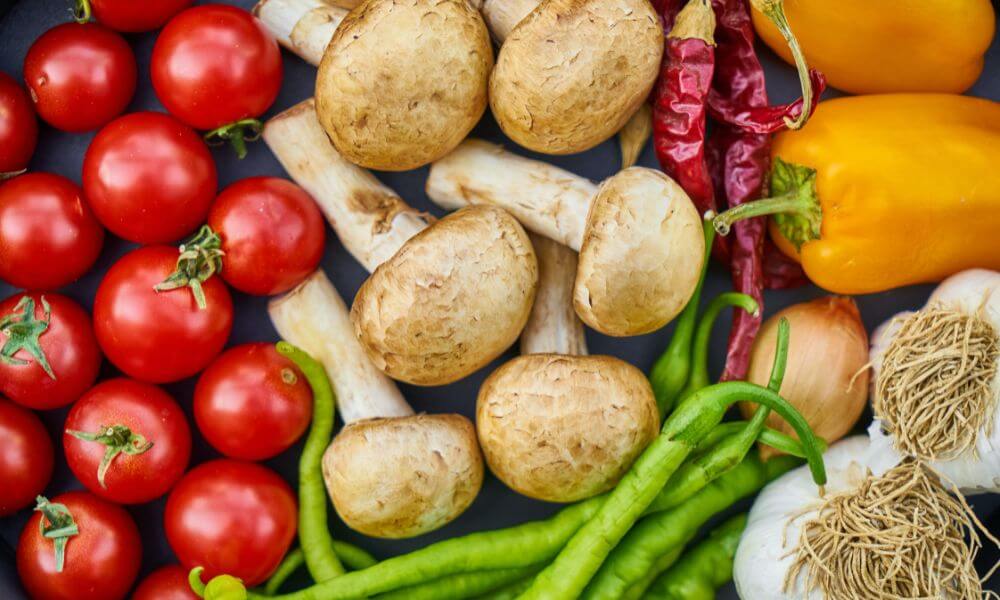
Usually, diets have many rules, are very restrictive, and require precise recipes, but that doesn’t apply to the whole foods diet.
A whole foods diet is more of a lifestyle than a diet because there are no strict rules except one: avoid as many processed foods as possible and try to eat everything in its natural state.
In this article, you will understand the following:
- the benefits and downsides of a whole foods-based diet
- the risks of eating too many processed foods
- what foods should you eat, and what foods should you avoid
- which foods we can call whole foods
- how to start your own whole foods journey
Are whole foods healthy?
Eating all foods in their natural states looks like a very healthy diet, but how do we know for sure? What are the benefits of this eating philosophy for our health?
Let’s find out
Heart health
One of the most relevant benefits of a whole foods diet is that it is said to improve heart health.
In fact, it can reduce the risk of developing heart-related diseases and conditions, especially in the long term.
Immune system
The whole foods diet also supports the immune system, thanks to zinc, selenium, and vitamin C.
Those ingredients are good allies for preventing gut issues and decreasing inflammation.
Digestive system
Fiber intake is ideal in the whole foods diet.
That’s why this is the perfect diet to increase your fiber intake and improve your digestion.
Non-processed foods are easier to digest and don’t lose those rich nutrients that make your digestion much more effortless.
Plant-based foods
Taking on this diet means you will probably increase the amount of plant-based food you usually eat daily.
Plant-based foods include fruits, vegetables, seeds, nuts, and legumes.
Eating more plant-based foods is another great benefit of this diet.
Plant-based foods are more digestible and contain the right amount of sugar, vitamins, minerals, and antioxidants.
Fewer cravings
Natural ingredients may cause fewer food cravings, so eating non-processed food often helps us feel more satisfied after every meal.
Long-term effects
Generally speaking, all of these factors contribute to bettering our general health, increasing life expectancy, and building a solid foundation for a healthy and sustainable lifestyle.
A healthy heart, a robust immune system, and an effective digestive system are all essential to keep your body strong and in good shape!
You May Like>>> Check the virtual whole foods cooking classes here!
Risks of processed foods
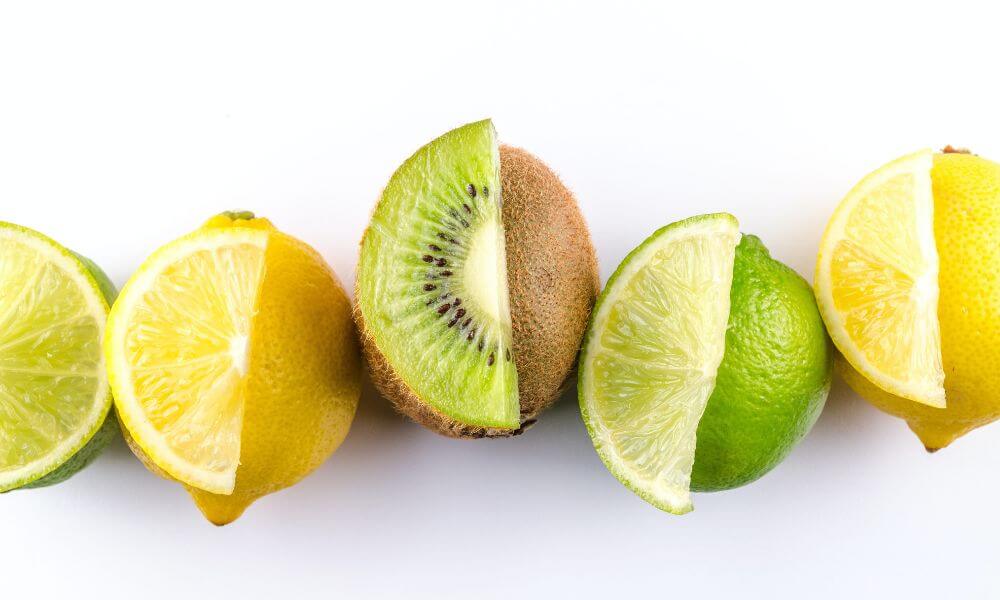
As previously anticipated, the other end of the the spectrum of the whole foods diet is processed foods.
Processed foods are foods that are canned, frozen, packaged, and have preservatives, and more salt, sugar, sodium.
It is believed that a consuming too much of this sort of food leads to a higher risk of complications and diseases like heart dysfunction, weight gain, type 2 diabetes.
Below we will list some of the components of processed foods that can negatively affect us;
Salt
Specifically, added salt in processed foods can lead to high blood pressure and the development of heart diseases.
High levels of salt can be found in foods like chips, hot dogs and sausages, canned meat, frozen food, canned beans, etc..
Fats
With the development of packaged and processed foods came an increase in the overweight and obese population.
That is because these foods have high fat and calories, while whole foods, instead, have more nutrients and a higher concentration of carbs or proteins.
Addictive taste
Another aspect of many processed foods is that they are designed to be addictive.
In fact, the levels of salt and sugar in these foods are specifically calculated and tested to make you crave them even more.
More whole foods in your diet will satisfy you sooner without restricting yourself.
You May Like>>> Check the virtual whole foods cooking classes here!
Are there downsides to whole foods diet?
Like with every diet, we always have to consider our personal needs and conditions and understand if there could be some downsides to starting a new diet.
These could be some aspects to consider when starting to eat a whole foods based diet:
Practicality
One detail that could be annoying for some people, especially those with a busy schedule, is the need to do a lot of meal prep in advance.
Eating whole foods means avoiding quick and practical pre-made meals and substituting them with more complex recipes.
One suggestion is to do meal prep on Sundays or less busy days and find recipes that suit your taste and schedule!
Cost
Quality food often leads to higher prices, especially if we talk about raw food like fruit, vegetables, seeds, and nuts.
Try to find local farmers’ or organic food markets in your area; those are usually the best places to get fantastic quality whole foods at a reasonable price.
Eating disorders
Even if this diet is not as restrictive and controlling as others, it is still based on avoiding some foods labeled as “bad” and restricting to a healthier lifestyle.
This concept could be difficult to manage if someone is dealing with eating disorders and could even worsen it and the symptoms.
It is advised that those who can connect to this element work on a plan with a dietitian or an expert in eating disorders to determine what is best for them and their needs.
What foods are considered whole foods?
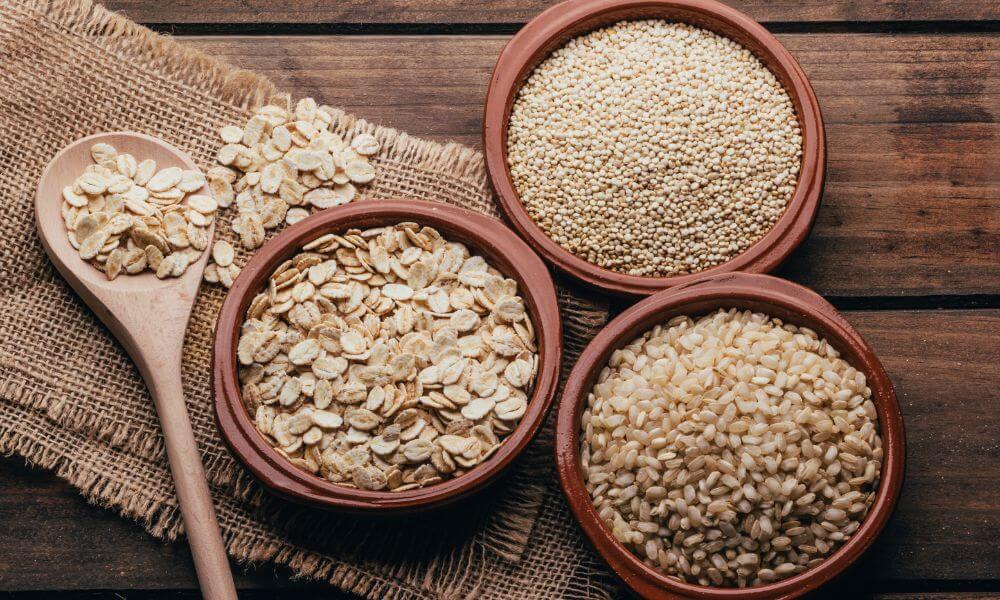
Now that we know all about whole foods and why they are so good for our health, let’s see what we can include in our whole food diet and what we should avoid.
Here you can find a complete list of all the foods to eat and which ones to considerably moderate or avoid:
Foods to eat
- Nuts and Seeds (almonds, walnuts, chia seeds, pumpkin seeds, sesame seeds)
- Whole grains (oatmeal, bulgur, quinoa, barley, amaranth, brown rice, farro)
- Veggies (green beans, asparagus, bell peppers, broccoli, eggplant)
- Tubers, Corn, and Potatoes (potatoes, sweet potatoes, carrots, corn)
- Fresh fruit (bananas, oranges, berries, apples, ananas, avocado)
- Fish and Seafood (halibut, cod, sea bass, shrimp, salmon)
- Meat and poultry hormones and antibiotics free
- Dark greens (kale, bok choy, spinach)
- Legumes (beans, lentils, chickpeas)
Foods to avoid
- Refined grains and flour (white bread, white flour, pastries)
- Artificial sweeteners, flavorings, colors, and preservatives
- Processed meat (chicken nuggets, hot dogs, deli meat)
- Food oil and concentrated fats (butter, lard)
- Fast food, frozen, and microwave meals
- Chips and crackers
- French fries
- Candy
How to start eating whole foods
So, after reading more information on the topic, you might have decided that a whole food diet is what you need to improve your wellness and increase the quality of your life!
But how do you start?
Even if we are so determined and excited, sometimes it is not so easy to start something new because it can get overwhelming and stressful.
That’s why you should consider taking a virtual whole foods cooking class!
These virtual whole foods cooking classes are perfect for:
- Understand what are the right ingredients to use
- Learn new and delicious recipes
- Replicate classic recipes with different ingredients
- Learn recipes to take care of your chronic pain and diseases
- Have private sessions with professionals to create a personalized plan based on your needs and interests
- Take in-depth and complete courses to take your cooking skills to the next level
Why take on whole foods cooking classes?
If your goal is to develop a healthier lifestyle and be more conscious of what you put into your body, then whole foods cooking classes are the best solution!
Whole foods represent the pure essence of what we eat, straight from mother nature and full of all the ingredients your body needs.
These virtual whole foods cooking classes are the next step you need to take in your healthy lifestyle journey so you can include easy and delicious recipes in your everyday life as well as a whole range of natural and organic ingredients, and all the nutrients and vitamins you need to live a long and healthy life!
What to consider when looking for virtual whole foods cooking classes?
How do I choose the perfect class for me?
Don’t worry, we’ve got you covered!
Below are some of the details you should check out before starting your virtual whole foods cooking classes:
What foods do you enjoy the most?
What do you like about your current diet? Which foods or ingredients are included in a whole foods diet and which are not?
Try to understand how to include or transform your favorite dishes into your new diet, and maybe check out some courses and see if there are some on a particular topic that you care about!
For example, if you like sweets and desserts but struggle to create vegan cakes or pastries, check out some classes for whole foods and vegan desserts to make healthy and delicious dishes!
What is included in the course?
What do these courses offer?
Do they teach a wide range of different recipes?
Are they explaining the nutrients of each food and how to create balanced and tasty dishes?
Do they offer 1:1 sessions for your personal questions?
Answering all these queries will help you understand if the course you are considering matches your specific expectations and needs.
What do the reviews say?
Another great way to evaluate a course is to check out the reviews.
Customer reviews can show you the consumer’s point of view and help you understand the main benefits and downsides of each course.
Again, compare your expectations with what other people who have taken the course have to say, and draw your own conclusions about the one you are checking out.
Does it suit your schedule?
Are you willing to change your diet but can’t because of your busy schedule? Maybe you’ve just found the solution to your problems.
Virtual whole foods cooking classes are the best way to learn from the best chefs and teachers without living in your kitchen! Also, classes are usually recorded so you can decide when to take the classes and how much time you would need for each session!
Instead, if you are interested in a 1:1 session with a professional about your queries, you can schedule a session directly and communicate when you can be available.
Can I get a certification after the course?
You can find courses for any of your needs on the internet, but if you want to be an expert, learn from the best teachers and use your new knowledge and skills professionally, we’ve got you covered.
You can check out some virtual whole foods cooking classes that give you an official certificate at the end of the course to use in your professional journey.
Discover Pure Joy Planet!
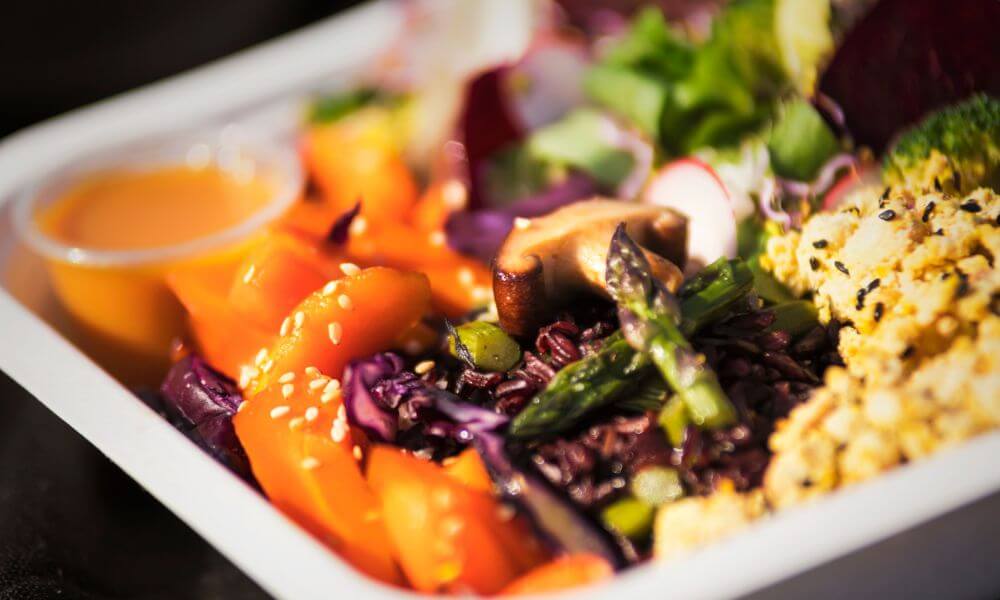
Pure Joy Planet is genuinely the best platform for your journey toward a healthy lifestyle!
They offer 1:1 coaching, online cooking classes, and virtual certificates, teaching you the best techniques and innovative recipes based on plant-based and vegan diets.
On their website, you can find vegan, gluten, grain, and dairy-free, plant-based keto, paleo, and flexitarian recipes and culinary tips to regulate hormonal imbalances, health problems, and weight gain.
For Pure Joy Planet, a healthy lifestyle and diet suit your body, mind, and soul! Every journey is essential, and knowing how to improve the quality of your life through your food is a power not to underestimate!
You May Also Like>>> Check the virtual whole foods cooking classes here!
Pure Joy Planet Courses
The courses are both for lovers of healthy food who need some help to take the cuisine to the next level and for chefs and professionals who have the opportunity to have a high-value small academy to become experts in healthy and sustainable cooking.
They focus on teaching people how to cook vegan and raw foods, getting chefs certified in a plant-based diet, and making fermented vegan cheese, raw and vegan grains, and vegan desserts.
Private Coaching
Pure Joy Planet also offers private coaching for those who need guidance in their diet journey!
Their main goal is not to create a restrictive diet but to understand how to achieve their health goals and create delicious and tasty meals.
In these sessions, you could learn how to boost your energy, improve your relationship with food, eat more consciously and learn simple recipes to adapt to your routine and lifestyle.
Another option is the Group Coaching Session, where you can share your journey with others like you and support each other in creating a new lifestyle!
Check the virtual whole foods cooking classes here!
Let us know which one you choose, and have fun!